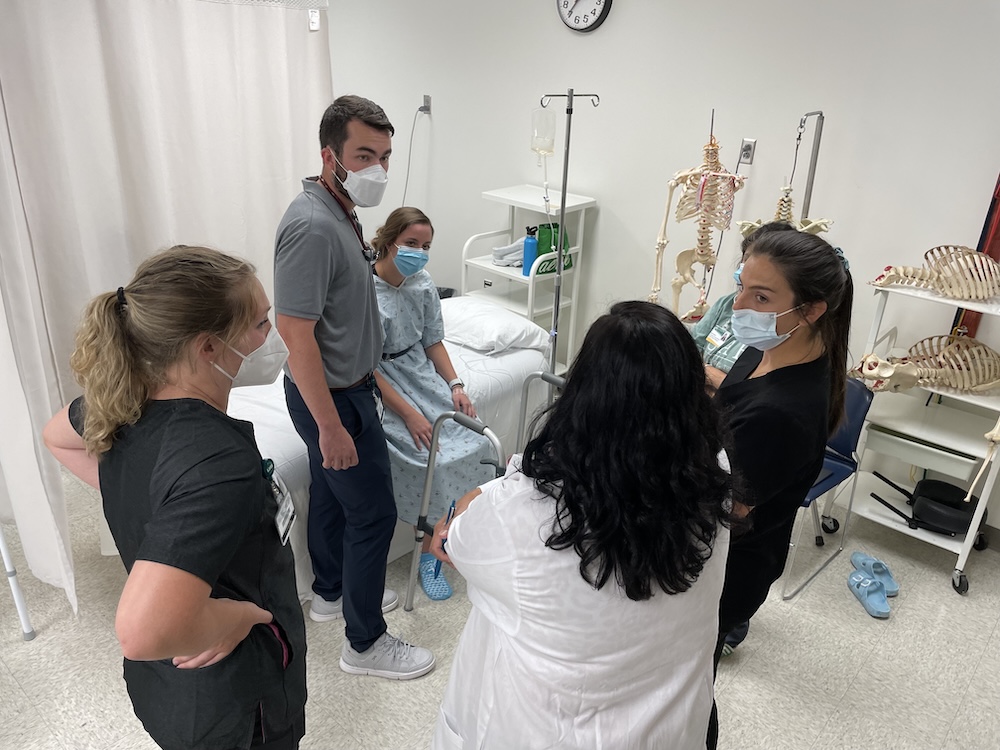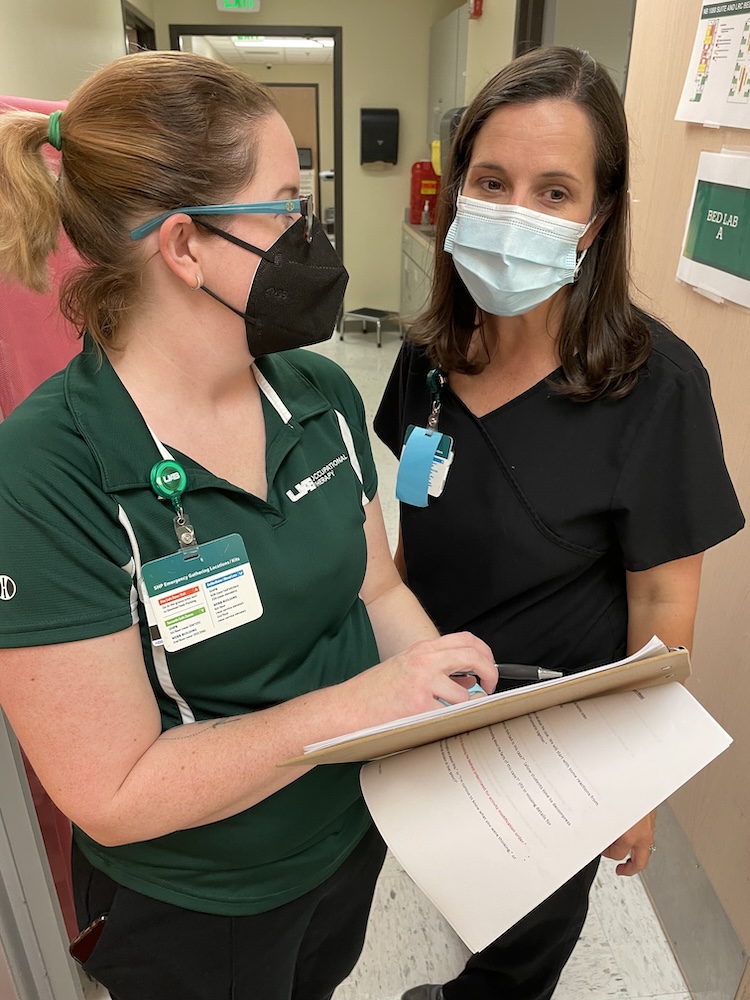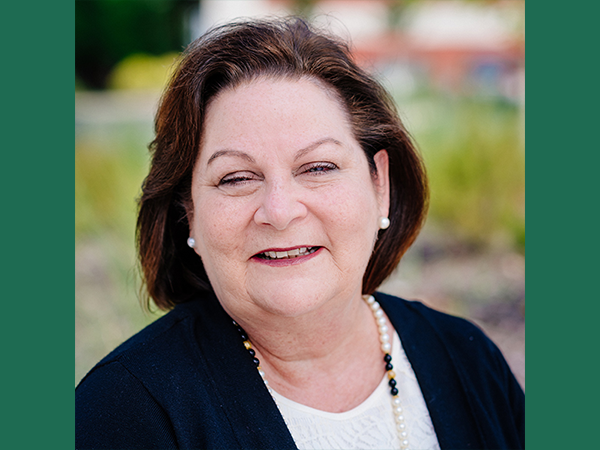 UAB OT and PT students in hospital simulation.
UAB OT and PT students in hospital simulation.
When an observer walked into the converted classroom space on the second floor of UAB’s School of Health Professions, they immediately thought it was an ant hill that sounded like a beehive. There was a constant flow of movement and activity overlaid with the non-stop buzz of chatter, hum of noise, accented by beeps.
This was the second annual UAB PT/OT Outside Hospital Simulation – 240 students from the Doctor of Physical Therapy and Clinical Doctorate in Occupational Therapy programs learning first-hand what it means to walk into an acute care hospital setting.
“One of the things we learned when we put this together for DPT students during the pandemic is that we should make this event more interdisciplinary,” said Tara Pearce, PT, DHS, associate professor, director of Clinical Education, Department of Physical Therapy. “And I always said, if we’re going to expand to make it interdisciplinary, our first thought was to immediately turn to OT to seek their participation.”
Pearce has long worked with Valley McCurry, PhD, MBA, OTR/L, FAOTA, assistant professor, Department of Occupational Therapy. The two have taught segments of classes to each other’s students and worked in a clinic together so it was only natural that they teamed up.
In 2022, they applied for the SHP Education Innovation Grant – a one-year grant awarded every year to faculty – and were awarded $16,000 for their program: “Interprofessional acute care hospital simulation-based learning activity.” This grant helped them purchase IVs, chest tubes, oxygen cylinder carts, nasal cannulas, catheters, and iPads (to create monitors with ICU vitals and sounds) to create realistic clinical settings commonly encountered in a hospital.
The two followed the best practice guidelines from the Association of Standardized Patient Educators (ASPE) and Healthcare Simulation Standards of Best PracticeTM to design a renewable program where first-year students play the role of patients and hospital staff and second-year students are the OT and PT practitioners.
“One issue many students find challenging in hospitals is managing the lines and tubes commonly found on patients in a hospital setting. Our students talk about the awkwardness of trying to navigate their body and keep the patient safe,” said Pearce.
 OT faculty Megan Carpenter and McCurryMcCurry and Pearce wanted the experience to truly replicate the hospital setting. They thought of the little things – like the white noise that is a constant and unsettling for newcomers, but just part of the ambience for the experienced. They have also thought of the big things, like electronic medical records because every student must be able to walk in, read a chart, process information, and with that limited information be able to understand the situation well enough to plan a therapy session on the spot.
OT faculty Megan Carpenter and McCurryMcCurry and Pearce wanted the experience to truly replicate the hospital setting. They thought of the little things – like the white noise that is a constant and unsettling for newcomers, but just part of the ambience for the experienced. They have also thought of the big things, like electronic medical records because every student must be able to walk in, read a chart, process information, and with that limited information be able to understand the situation well enough to plan a therapy session on the spot.
Added to the pressure to perform is the ever-watching eyes of the OT and PT faculty, who served in various roles of hospital staff persons. Because this project is interdisciplinary, there are twice as many faculty on site. And because this training is critical, the faculty is there to support, not judge.
“This is truly a learning experience – it is not a graded experience for either group,” said Pearce. “The participation in engaging patients, delivering care, and collaborative communication is just a great learning opportunity for them to experience.”
“Because it is not graded, they come at it from a different perspective because they don’t feel this additional pressure to do everything right,” said McCurry. “We are giving them a critical thinking problem and we want them to show us their skills and show us how they work through these common issues.”
The sessions end with debriefings and reflection for each set of students. The faculty go over the detailed notes from each session and highlight the areas of success and dissect the opportunities for improvement. They also talk about the impact these simulation experiences have on the students’ confidence in the acute care clinical experience.
“When a new therapist walks into a hospital room and the patient is hooked up to all these things they are immediately overwhelmed and think they can’t do anything,” said McCurry. “After these trainings, the UAB OT and PT students understand that is not accurate – that is anxiety. They now know they can manage the situation, they can navigate the obstacles, and they will help their patients.”

